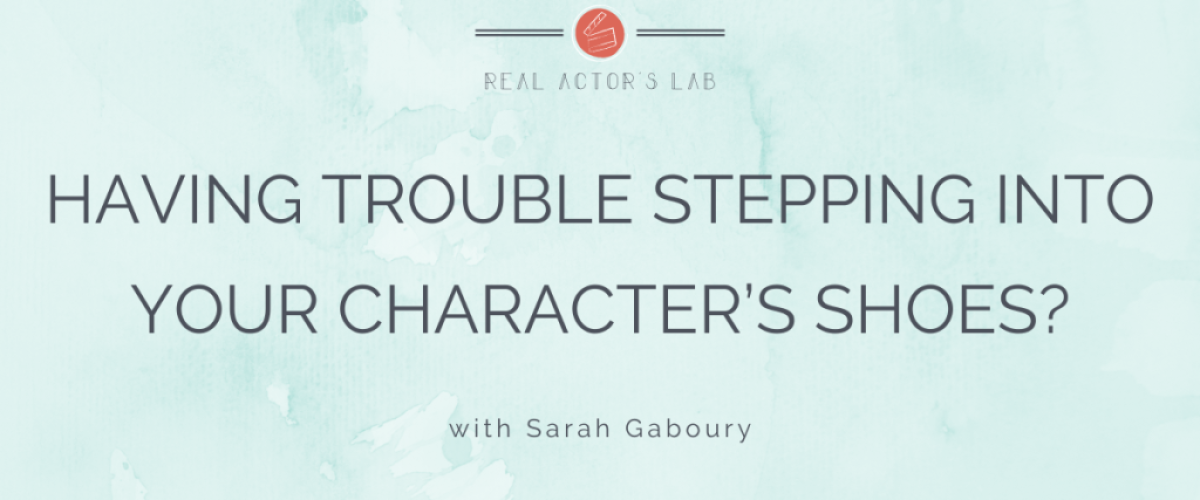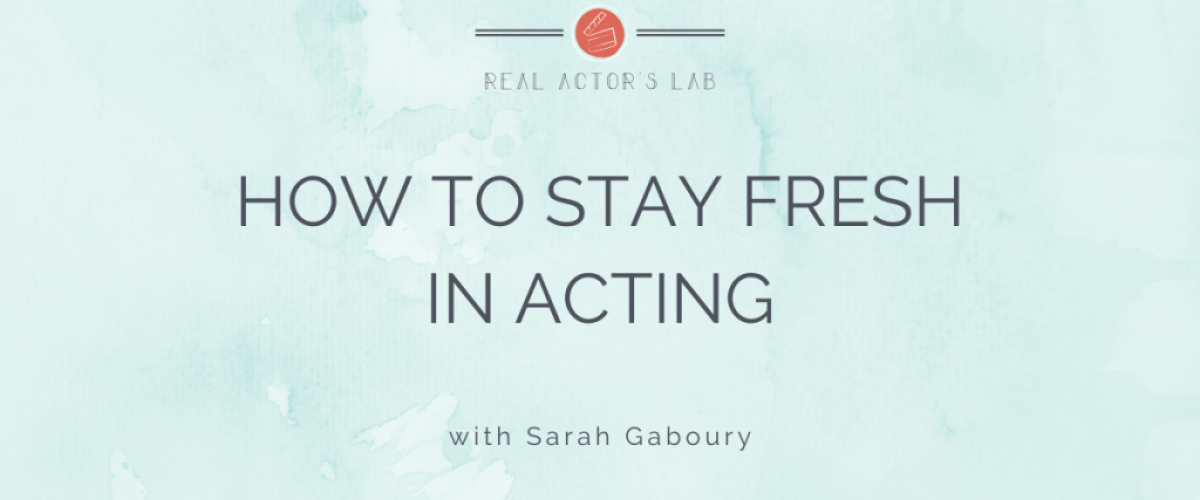How to make stepping into your character’s shoes easier and more authentic
Ever thought about the idea of an action palette for the roles you work on? I love this, it’s super juicy and can help you with stepping into your character’s shoes.
I often use exercises inspired by Scott Illingworth’s book (Exercises for Embodied Actors) to encourage actors to find their own personal action palette. (Essentially you take detailed notes of the actions you play in your own life for a week and you’re eventually able to boil it down to a small group of action words that reveal the palette you tend to play from in your everyday life.)
The roles you play also have palettes and I find this incredibly helpful, especially when you are working on a role who has had a very different set of circumstances in their life than you and won’t be able to simply pull from your own palette of actions and do the role justice.
In this clip, I had encouraged this actor to build the story and connections that will justify her actions in the scene.
Instead of hoping you will magically lose yourself and transform or morphe into an entirely new person (this is not usually what an actor experiences), think of their life as yours. What if there was no distance at all? What if it was actually vital that you never lose yourself?
Find the hooks that connect you to the circumstances and the core of what you are experiencing in the scene. This can help you truly live their life on camera and shatter the notion of somehow losing you.
CLASS CLIP TRANSCRIPTION
Student: It’s funny, I feel much more like Angela than I did in the beginning.
Sarah: Yeah! Good!
Student: In the beginning when I first read it, I was reading it to Rosie, and I was like, “Rosie, I’m never going to be able to be this woman!
Sarah: You totally are! Such a good experiment, though, right?
Student: It was a great experience because it really forced me to be uncomfortable, like I’m not, I can’t say that, I’m never gonna say things like that, but…
Sarah: It’s so much more fun!
Student: I can say things like that!
Sarah: Why not? And, this is why I’m, again, excited for you to do these actions in your own life, because you’re gonna start to see, like you said, I don’t feel like her yet. Part of us, in our own lives, what we start to see doing this exercise, is that we are constantly code-switching, depending on who we’re with, and in a way, it’s not that different, when we step into these temporary situational selves.
And say, this is me, if all these other life circumstances happen, so let me build some of the past, let me build a couple of vivid memories, let me step into her shoes. I don’t have to become her, but I can figure out what her palette is and why. Why does she have to protect herself? What happened?
Student: Right.
Sarah: So it doesn’t have to feel so far away from you, like you have to become this other human and lose yourself into Angela, you know? I don’t think that’s real.




